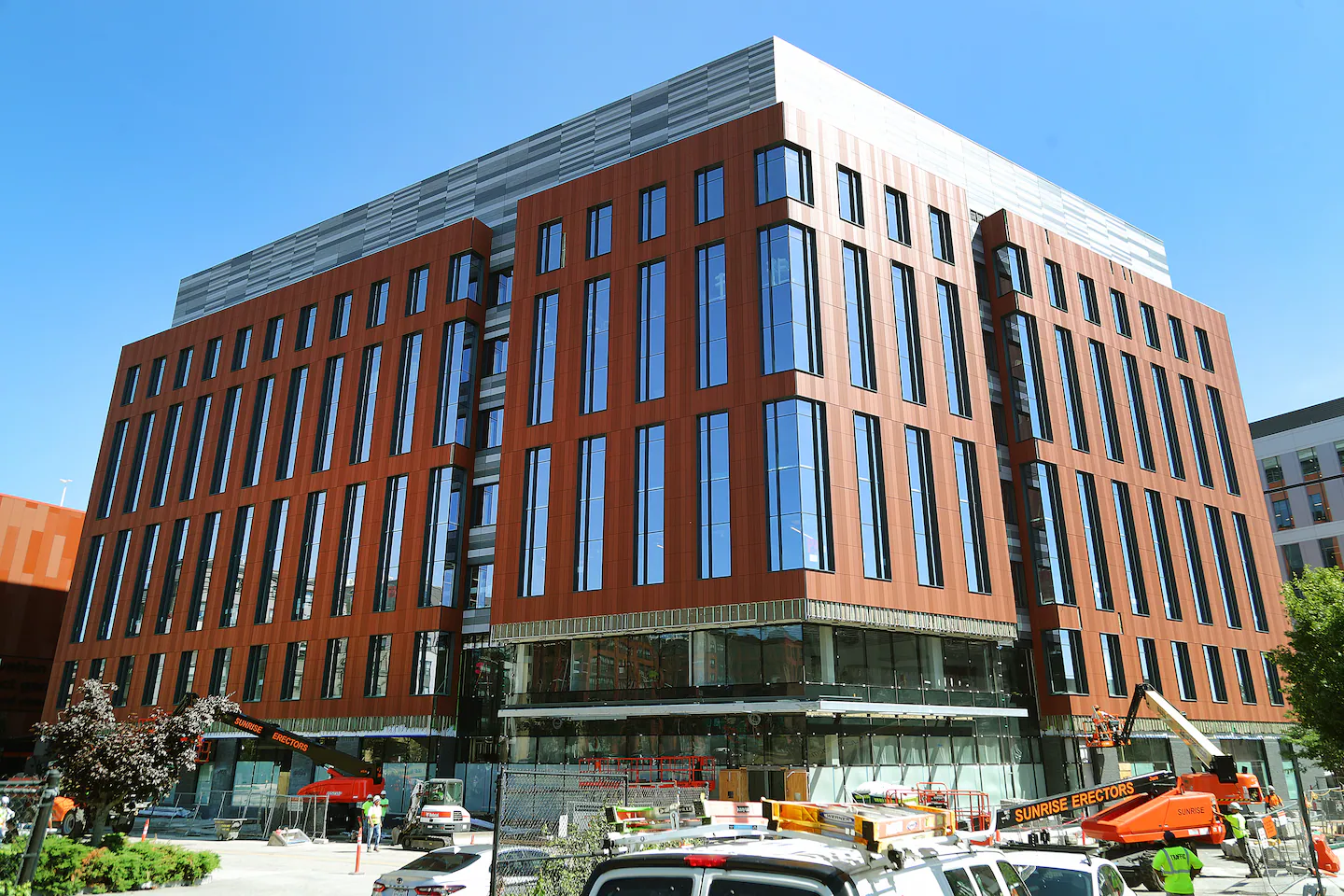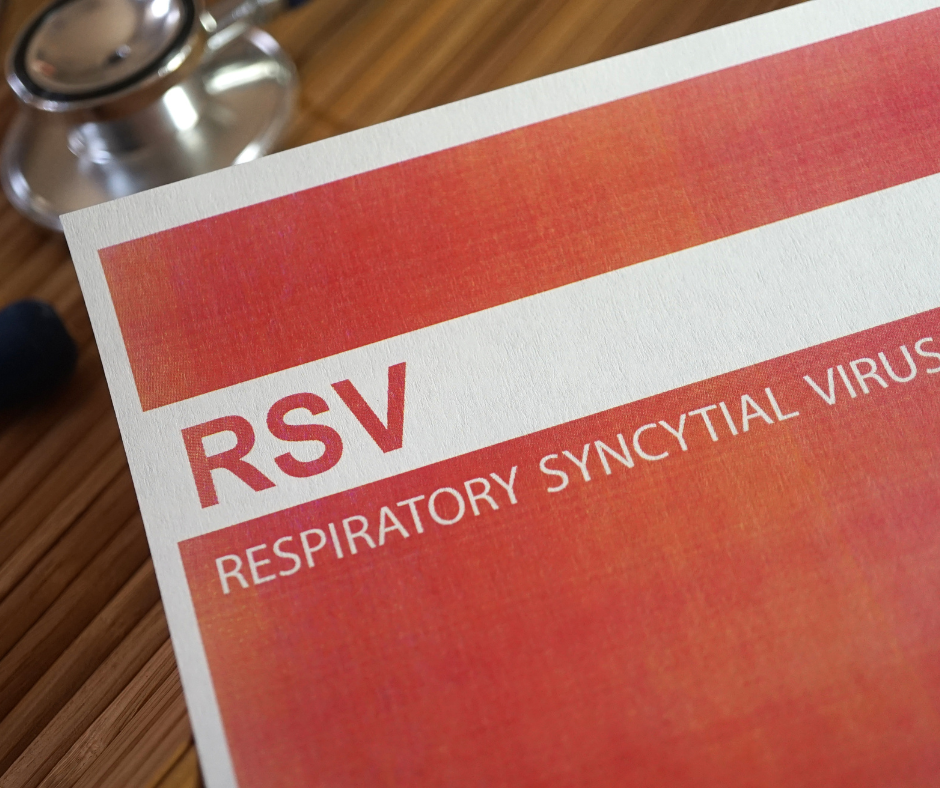
PROVIDENCE — Even before scientists start putting their work under microscopes, Ocean State Labs, Rhode Island’s first life science incubator, came into focus on Wednesday as lab leaders and state officials unveiled five inaugural companies who will begin work there early next year.
The announcement marked a ceremonial high for state officials who have long touted the incubator as a vehicle to help attract entrepreneurs and biotech companies to Providence’s burgeoning lab cluster in the city’s Jewelry District, with hopes to make Rhode Island more competitive in a sought-after industry.
“There is an immense scale and importance of the sector, with the states wanting to be leaders in biotechnology innovation, especially as global demand for healthcare solutions continue to grow,” said Dr. Mark A. Turco, president and CEO of the Rhode Island Life Science Hub, the quasi-public organization tasked with growing the industry’s presence in the state. “Rhode Island has a unique capability and talent now in a growing infrastructure, as you see today, to be that leader.”
Ocean State Labs will open to its inaugural members in the first quarter of 2026, officials said Wednesday.
Advertisement
They include Pax Therapeutics, working to optimize healing tendon and ligament injuries through gene-delivery tech; OncoLux Inc., a medtech company “developing advanced optical imaging and AI technology” to improve surgical procedures in oncology; and XM Therapeutics, which is “developing tissue repair and regeneration platforms for chronic disorders,” according to officials.
Other members include P53 Therapeutics, which is “pursuing a new class of small molecule therapeutics designed to overcome p53 tumor suppressor mutations in cancer” and MindImmune Therapeutics, a biopharmaceutical company “focused on neuroinflammation and Alzheimer’s disease,” officials said.
Advertisement
Ocean State Labs will be operated by Portal Innovations, a venture development firm that specializes in incubating early-stage companies. The firm has several other locations already, including in Boston, Atlanta, Houston, Chicago, and New Brunswick, N.J.
Members are given laboratory space in “turnkey” condition, according to John Flavin, founder and CEO.
“It‘s not just a lab with a basic bench,” Flavin said. “There are minus-80 freezers, centrifuges, rotavaps — the kinds of instruments you need to be able to carry out your experiments.”
The entire incubator space — which can accommodate up to 30 companies — will occupy more than 30,000 square feet inside the new seven-story PVD Labs at 150 Richmond St. The incubator will share a roof with the Rhode Island State Health Laboratory, and Brown University has also signed on as an anchor for the complex.
Collectively, the laboratories now sit in the heart of what’s been branded as Providence’s “Innovation District,” land in the former shadow and footprint of Interstate 195 that has transformed into a hub of lab space and start-ups.
Brown is constructing a 300,000-square-foot life sciences facility for some 700 researchers, just across from the university’s Warren Alpert Medical School and near its other affiliated labs and facilities.
Around the corner stands Cambridge Innovation Center’s Providence location, offering office and co-working spaces, particularly for small businesses and start-ups.
Speaking on Wednesday, Mayor Brett Smiley described the district as “the future of Providence, the future of our economy and where we’re headed.”
Advertisement
“This area is starting to look like a mini Kendall Square,” Turco said.
Yet, it was precisely what Providence had to offer over Cambridge that helped to sway MindImmune Therapeutics to Ocean State Labs, according to Frank Menniti, chief science officer.
“Cambridge is not all it’s cracked up to be,” Menniti told reporters. “This seems like a much better place to be able to thrive. It’s simpler to get around. The quality of the science, the quality of the academics, is every bit as good as it is in Boston.”
Dr. Wafik S. El-Deiry is the founder and chairman of P53 Therapeutics and is also director of Brown’s Legorreta Cancer Center. P53 was founded in Pennsylvania, but “because of the opportunity here, it makes sense to be here,” El-Deiry said.
The incubator’s close proximity to the university allows for collaboration, he said.
“We have many students and scientists who are interested in what this company is doing, and so we certainly look forward to taking advantage of being located here,” he said.
The Life Sciences Hub launched with a $45 million investment from the General Assembly in 2023 — funding intended to be spread out over the following three years. The Hub will require another round of funding to continue its work in 2026.
The state-backed incubator also arrives as the Trump administration has targeted research and academic funding at the federal level. Turco said those “headwinds” emphasize the need for states to keep that work going.
“It’s critically important for states to take the initiative and help support technology and innovation development so that we don’t fall behind,” Turco told reporters. “There is such a great appetite, and I am very optimistic that we can continue to find ways to help fund the great work and science that is coming out of our amazing institutions, academic institutions and academic health systems.”
Advertisement
Governor Dan McKee added, “We just got to keep on pushing through and getting the work done and knowing that we’ve established a path that we can continue working on regardless of what happens coming from D.C.”
Christopher Gavin can be reached at christopher.gavin@globe.com.



